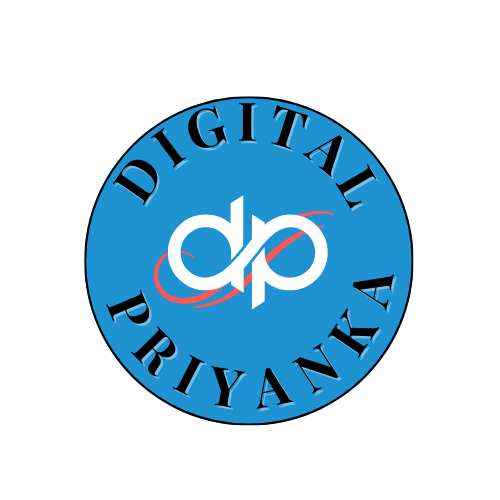SEM (Search Engine Marketing)
- What is Search Engine Marketing(SEM)?
SEM stands for Search Engine Marketing, which is a type of digital marketing used to promote websites on search engines like Google, Bing, or Yahoo. The main goal of SEM is to make sure that when people search for something related to your business, your website appears at the top of the search results. Unlike SEO (Search Engine Optimization), which focuses on free ranking, SEM mainly uses paid advertisements to get quick visibility and traffic.
The most common way SEM works is through Pay-Per-Click (PPC) advertising. This means businesses create ads and only pay when someone clicks on them. For example, if you sell shoes online, you can create ads that appear when people type “buy shoes online” into Google. Whenever someone clicks on your ad, you pay a small fee to the search engine. This helps businesses reach potential customers faster and more effectively.
SEM is very important because it helps businesses target the right audience at the right time. People who see SEM ads are already searching for products or services, which means they are more likely to buy. It also gives measurable results, so businesses can track how many people clicked, visited their website, or made a purchase. This makes SEM one of the most powerful tools for growing sales and building brand awareness.
SEM is like buying a shortcut to the top of search engines. It is especially helpful for new businesses that want quick traffic or for companies in highly competitive markets. By combining SEM with SEO, businesses can get both immediate results (through ads) and long-term growth (through organic ranking). That’s why SEM is considered an essential part of digital marketing strategies today.
- Why is SEM Important?
SEM is important because it gives businesses instant visibility on search engines. Instead of waiting months to appear in organic results through SEO, SEM ads can place your website at the top of search pages within minutes. This is very useful for new businesses, product launches, or seasonal campaigns where time matters. Being visible when customers are actively searching increases the chances of getting clicks and sales quickly.
Another reason SEM is important is because it allows businesses to target the right audience. With SEM, you can choose specific keywords, locations, age groups, or even the time of day when your ads will appear. This ensures your ads are shown only to people who are more likely to be interested in your product or service. For example, a local restaurant can run SEM ads only for people searching “restaurants near me” in their city, making the ad spend more effective.
SEM is also important because it provides measurable results. Businesses can track how many people clicked their ads, how many visited the website, and how many made a purchase. This helps in understanding what works and what doesn’t. With this data, companies can adjust their ads, improve performance, and avoid wasting money. In short, SEM helps businesses spend smarter, not just bigger.
Finally, SEM is important because it helps businesses stay competitive. Almost every industry has competitors advertising online. If your business does not use SEM, you may lose potential customers to competitors who appear at the top of search results. By using SEM, you not only attract customers but also build brand awareness and trust. That’s why SEM is a key marketing tool for both small and big businesses in today’s digital world.
- Factors Of SEM?
- Keywords – Selecting the right search terms that match what users are looking for. Good keyword research improves targeting and reduces wasted ad spend.
- Ad Quality – Creating clear, relevant, and attractive ads. A higher ad quality leads to better placement and lower cost per click (Quality Score).
- Landing Page Experience – The page users land on must be fast, mobile-friendly, and directly related to the ad. A good experience increases conversions and ad ranking.
- Budget and Bidding Strategy – Managing daily spend and deciding how much to pay per click. Smart bidding helps maximize results within budget.
- Targeting Options – Setting filters like location, device, language, age, or time of day to reach the right audience effectively.
- Ad Extensions – Adding extra details to ads, such as phone numbers, links, or locations, to make ads more engaging and clickable.
- Performance Tracking – Using tools like Google Ads reports or analytics to measure clicks, conversions, and ROI. This helps improve campaigns continuously.
- Advantages and Disadvantages of SEM?
Advantages of SEM:
One of the biggest advantages of SEM is that it provides instant visibility. Unlike SEO, which takes months to show results, SEM ads can put a business at the top of search engine results within minutes. This makes it perfect for new businesses, seasonal promotions, or product launches. Another advantage is precise targeting. Businesses can choose who sees their ads based on location, age, interests, or search intent, ensuring that money is spent only on relevant audiences. SEM also gives measurable results through data like clicks, impressions, and conversions, helping businesses understand performance and improve their strategy. Lastly, SEM increases brand awareness and competitiveness, as appearing in search results repeatedly makes people trust the brand more.
Disadvantages of SEM:
On the other hand, SEM has some disadvantages too. The first drawback is that it can be expensive, especially in competitive industries where many businesses are bidding on the same keywords. Once the budget is exhausted, the ads stop showing, unlike SEO where organic ranking can bring continuous traffic. Another disadvantage is click fraud, where competitors or bots may click ads repeatedly, wasting the budget without real customers. Also, SEM requires constant monitoring and management. Ads need to be updated, keywords refined, and bids adjusted regularly, which can take time and effort. Lastly, SEM brings short-term results, and relying only on paid ads without combining with SEO may not be sustainable in the long run.
- Conclusion
SEM is a powerful digital marketing strategy that helps businesses gain quick visibility, attract the right audience, and achieve measurable results. While it requires investment and regular management, its ability to deliver instant traffic and competitive advantage makes it an essential tool for growth. When combined with SEO and other marketing methods, SEM becomes even more effective for long-term success.

